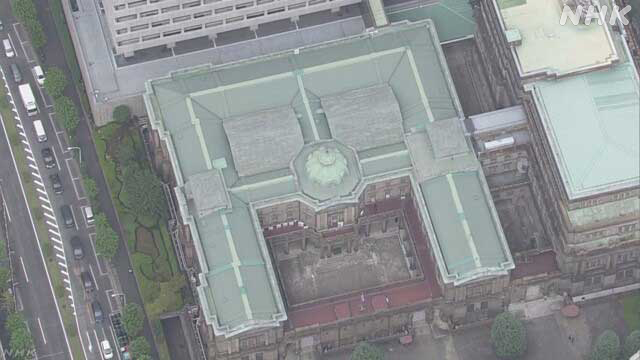The Bank of Japan has announced the agenda of the March meeting after conducting an "inspection" of monetary easing measures.
At the meeting, policies were revised in consideration of the side effects of monetary easing, such as flexible purchases of ETFs = exchange-traded funds, but some committee members pointed out that caution should be exercised so as not to be mistaken as a recession of easing. It turned out that was issued.
At the March meeting to decide monetary policy, the Bank of Japan announced the results of "inspections" to implement more effective and sustainable monetary easing, and made some policy revisions such as flexible ETF purchases. did.
The minutes of the meeting were released on the 6th, and while members shared the view that it would be effective to buy ETFs on a large scale when the market became unstable, one member said, "Monetary easing. Be careful not to be mistaken for a setback. "
In addition, in the "inspection", the fluctuation range of long-term interest rates was set to "plus or minus 0.25%", and the stance of allowing constant fluctuations in interest rates was clarified.
However, several committee members pointed out that "it is appropriate to strictly respond to the upper limit of the fluctuation range," and emphasized the stance of maintaining strong monetary easing.
While the price target of 2% is far from being achieved due to the effects of the new coronavirus, it can be seen that the Bank of Japan is struggling to continue large-scale monetary easing while considering side effects.

